Publications available on
print and vcd
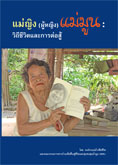
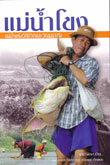
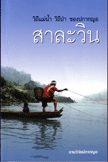
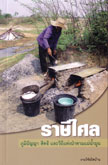
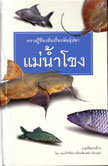
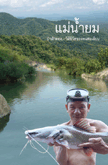
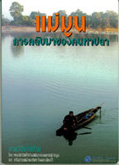
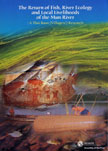

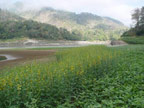
River bank garden
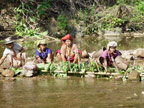
Communities and river
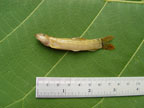
Fish species found in the Salween river and its tributaries
|
|
|
We are the receiver of the
problem, we are directly affected people, our lives have been destroyed
by the dam, when fish and nature restored to the river, our lives are
restored too, We try to make other people to see and understand
the impacts of what is going on after the dam gates are opened. And so
we think of documenting the impact of the opening of gates by doing our
own research. If outsiders conduct research, we are afraid that
they will not see and collect all aspects of impacts from the dam because
they are outsiders who live in cities and do not understand our lives.
They do not know about fish, ecosystem, and The Mun River like us.
If they conduct research, they have to come to observe and interview us.
Therefore, we decide to do research of our own.
Thongdham
Chatapan, village researcher
at Pak Mun
Thai Baan research research undertaken by villagers has recently emerged as a counter-hegemonic approach, aiming to reveal local knowledge about the environment and how villagers interact with it. It reveals their practical understanding of the complexity and dynamics of natural resources, the way resources have been used, and the moral economy of those who depend on them for their livelihoods.
Thai Baan research was established in 2000 when the Thai government agreed to open the Pak Mun Dam sluice gates to evaluate the social and environmental impacts from the dam’s operation. In this case, for the Pak Mun villagers who tried many ways to voice their concern and register their grievances about the environment, economic and social impacts of dam construction, the Thai Baan research has proven a means and another phase of their contested development. Many academic institutes were assigned by the Thai government to conduct various types of research but the reports did not reflect the “social reality” and ecological situation from the point of view of the affected-villagers. Academics from Chiang Mai University, the Southeast Asia Rivers Network, a regional non-governmental organisation and villagers affected by the Pak Mun Dam developed the Thai Baan research approach in order to collect data on issues such as local knowledge of fish, traditional fishing gear, natural plants and herbs, ecosystems and activities which returned after the opening of the dam gates. The research conducted was published and submitted to the Thai government to coincide with findings submitted by academic institutes. This type of research was meaningful for the villagers because were able to take control over the process and “write” their own story on how they perceive and interact with their environment and how to coexist harmoniously with it.
The findings of the Thai Baan research at Pak Mun have gained acceptance by academics, the media and civil society groups. The methodology utilised has been adopted and replicated throughout other areas in Thailand such as Rasi Salai, along the Upper Mekong in Chiang Khong, the Salween River along the Thai-Burmese border and the Songkram River Basin in the northeast. This expansion has allowed for an informal network of researchers to develop, share information and learn from each other. by Chainarong more >>
Activities
- First Meeting of Thai Baan Research Network of Thailand 6-7 August 2010, Chiang Kong, Chiang Rai Province
- NGOs and villagers from Vietnam visit Chiang Khong, Chiang Rai Province, Thailand to learn about Thai Baan Research 25 Feb - 1 Mar, 2009
- Midterm workshop on Local Knowledge Research at Me Linh village, Vinh Phuc, Vietnam 27-28 Jan 08
- Workshop on Thai Baan Research for a Chinese NGO group in Chiang Khong district, 5-8 Dec 07
- Thai Baan research training in China by SEARIN staff, May 07
- Thai Baan research training in Vietnam by SEARIN staff, July 06
Articles and News
- Tai Baan Research by Teerapong Pomun
- Local Knowledge and Food Security in the Mekong River Basin Teerapong Pomun
- Fishing for Influence: Fisheries Science and Evidence in Water Resources Development in the Mekong Basin Richard M. Friend M-POWER 2009
- Building on local knowledge for a Basin Development Plan by CEPA March 2008
- Community Based Fisheries Research in Thailand Carl Middleton and Pianporn Deetes October 15, 2006
- The village-researchersof Tai Baan :
Improving wetland management through joint learning David J.H. Blake and Rattaphon Pitakthepsombut June 2006
- Local Knowledge on Fish in the Mekong River
- Doing it for themselves Bangkok Post 27 June 2005
- Thai Baan Research in the Lower Songkhram River Basin Reflexions on Experience and Guidelines for establishing Participatory Research elsewhere IUCN July 2004
- Case study for empowerment and democratization Thai Baan research (Villagers research): Local Wisdom for resources Management Chainarong Sretthachau
- From Dammed to Liberation by Sam Hui : API Fellowship of the Nippon Foundation, July 2004

- A River, Its Fish and Its People: Local Knowledge of the Natural Environment
at the Mouth of the Mun River Mekong Watch May 2004
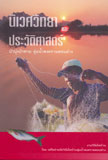 Thai Baan Research on the Ecology and Local History of the Seasonlly-Flooded Forest in the Lower Songkharm River Basin Thai Baan Research on the Ecology and Local History of the Seasonlly-Flooded Forest in the Lower Songkharm River Basin
by IUCN
|

